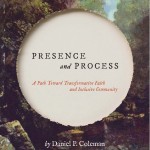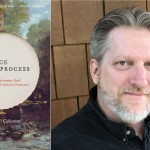
In his speech at the Arab Islamic American Summit, Donald Trump exhorted the leaders of Muslim nations that, “A better future is only possible if your nations drive out the terrorists and extremists. Drive. Them. Out. Drive them out of your places of worship. Drive them out of your communities. Drive them out of your holy land, and drive them out of this earth.”
This idea that you can simply “drive them out” to get rid of extremists and terrorists is simplistic to the point of being infantile. Terrorists aren’t termites. When you “drive them out” where do they go to? Underground where their ideology festers. How can you “drive them out” once and for all when they come from within?
Extremists are human beings who are reacting to something. They see terror as a solution to their problem. Governments of nations such as the U.S., Russia and Israel inflict terror using fighter jets and predator drones and “smart bombs” to address their problems. Islamic fundamentalists have to use cruder means. All are under the illusion that violence is an effective solution. Theologian Walter Wink called this “the myth of redemptive violence.”
What if instead we were to seek to understand the roots of what causes Islamic extremism and terrorism? Perhaps we could learn lessons that would break the cycle of violent retribution and could be applied in other contexts, such as white Christian nationalist extremism in the U.S.
I once heard a Muslim Imam–an expert in international affairs–make the point that Osama bin Laden would have become a politician instead of a terrorist mastermind, if such an avenue had been open to him in Saudi Arabia. But Saudi Arabia is a very authoritarian state where dissent tends to be brutally suppressed.
Terrorism is a perennial by-product of injustice, of disenfranchisement, of repression and of desperation. The instinct for fundamentalism, extremism and–ultimately–terrorism, is fed by hopelessness, marginalization, ignorance and fear. The terrorist, be they Islamic or Irish Republican or white U.S. nationalist is driven by a frustrated desire for purpose and meaning and significance that sours into nihilism.
If the U.S. really wants to play an effective role in eliminating terrorists we’ll need to honestly examine our role in creating the terrorists in the first place. For example, how has our history of colonialism and our policies of supporting repressive–even dictatorial–governments created the conditions for extremism and terrorism to develop? How has our use of violence and terror planted seeds of violence and terror to be used against us? How do we react in unskillful ways that not only perpetuate but amplify the cycle of violence?
To paraphrase Donald Trump’s misguided speech, perhaps a better future is only possible if we stop trying to “drive out” extremists and terrorists, and instead address the roots of extremism and terrorism. We can do this not by supplying weapons but by supplying opportunities, prosperity, education, justice, hope–for everyone.
Of course, it’s not as simple as either Donald or I would suggest. Extremism and terrorism are complex subjects. Legions of scholars have devoted years of study and have yet to arrive at easy, cookbook solutions. But, looking over the last 30 years, one thing is clear: “drive them out” isn’t a solution.










